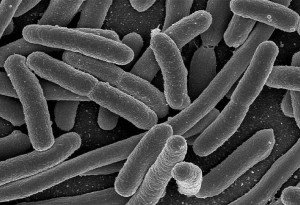The outbreak of Escherichia coli in Europe is causing widespread concern as experts work to pinpoint the source of the bacteria.
 Our colleagues at the UK SMC have collected the comments below from British experts. Feel free to use these quotes in your stories. To talk to a local expert please contact the Science Media Centre (smc@sciencemediacentre.co.nz; +64 04 499 5476)
Our colleagues at the UK SMC have collected the comments below from British experts. Feel free to use these quotes in your stories. To talk to a local expert please contact the Science Media Centre (smc@sciencemediacentre.co.nz; +64 04 499 5476)
Prof Paul R Hunter, Professor of Health Protection, University of East Anglia, said:
“The announcement that cucumbers are not to blame is not too surprising, since cucumbers are not normally implicated in food poisoning outbreaks. They are so easy to clean for a start and bacteria are less likely to be able to find a protected spot.
“On the other hand, salads are a regular cause of outbreaks of food borne diseases including STEC like this one and Salmonella. Outbreaks associated with consumption of salads are quite common on both sides of the Atlantic. You can see from the attached US data that raw vegetables are a major cause of food poisoning outbreaks in the US. The most implicated salad vegetables tend to be the green leafy ones such as lettuce or spinach. These salad vegetables offer good places for bacteria to hide and also can be difficult to wash. Indeed many people do not even bother washing these salad vegetables. Given what has been reported in the scientific literature about this outbreak so far (eg. this article) a salad source of this outbreak is still most likely. The initial epidemiology is showing significant associations with raw tomatoes, cucumbers and leafy salads. When you have three food like this that tend to be eaten together it is often very difficult to identify which of the three is the exact cause by epidemiological methods alone.
“Even though the cucumber hypothesis no longer appears to be the best bet, people should still be encouraged to properly wash all raw salads prior to consumption whether or not there happens to be an ongoing outbreak.”
Dr Jonathan Fletcher, senior lecturer in microbiology at the University of Bradford, said:
“Vero-toxin producing E. coli such as the O104 strain implicated in the German outbreak can cause very serious disease in humans (especially in the elderly or very young), but cattle seem to carry VTEC in their digestive tracts without showing any signs of illness, and these will be shed in the faeces. If cattle manure is used as a fertiliser, it is probable that vegetables such as cucumbers will be contaminated with E. coli, and if not washed properly it would be present in sufficient numbers to cause the infection.”
Prof Brendan Wren from the London School of Hygiene & Tropical Medicine said:
“E. coli can attach to the surface of many fresh produce, eg. lettuce leaves, spinach leaves and cucumber. These type of E.coli survive harsher environmental conditions than the typical E. coli and produce some nasty toxins to humans. They can survive in soil environments and fertilizer may be one source for the origin of the outbreak related to fresh produce such as cucumbers.”